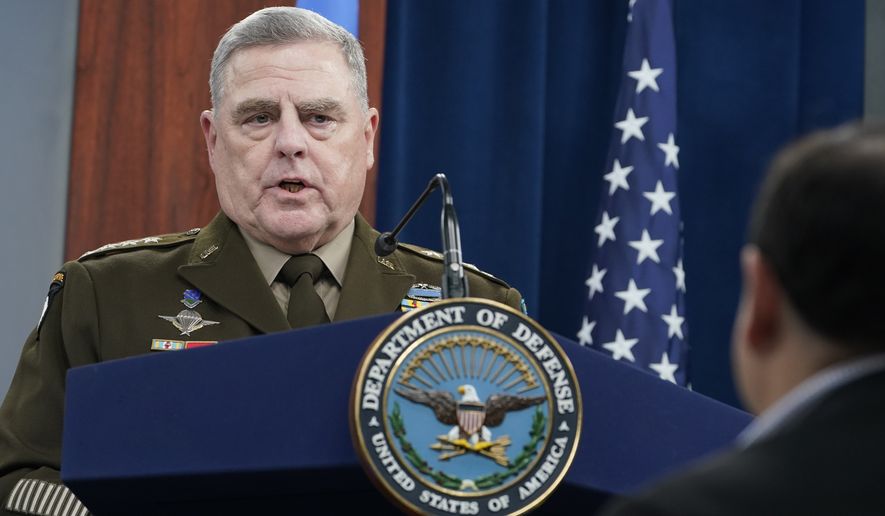The Pentagon has developed multiple military options ready for President Biden if, or when, Iran begins to build nuclear weapons, America’s top general told Congress Thursday.
The comments from Gen. Mark A. Milley, chairman of the Joint Chiefs of Staff, underscored the gravity of the situation with respect to Iran’s nuclear program, which is racing forward after the Biden administration failed to revive the 2015 deal with Tehran designed to limit that program. Since the diplomatic push was largely abandoned last fall, Tehran has made stunning strides with its nuclear efforts and analysts say the regime is now just months away from producing a bomb, if it chooses.
“Iran could produce fissile material for a nuclear weapon in less than two weeks and it would only take several more months to produce an actual nuclear weapon,” Gen. Milley told the House Appropriations subcommittee on defense Thursday morning. “But the United States remains committed, as a matter of policy, that Iran will not have a fielded nuclear weapon.”
“We, the United States military, have developed multiple options for our national leadership to consider if or when Iran ever decides to develop an actual nuclear weapon,” Gen. Milley said.
Indeed, U.S. officials have said that Iran can now produce enough enriched uranium for a bomb within about 12 days. Enrichment of about 90% is needed to produce nuclear weapons. United Nations inspectors earlier this month reported that uranium enriched up to 83.7% was discovered at Iran’s underground Fordo nuclear site.
The 2015 Joint Comprehensive Plan of Action, signed by the U.S. and other major powers during the Obama administration, limited Iran’s uranium enrichment to 3.67%, which is enough to produce nuclear power but not enough for a weapon.
Former President Donald Trump pulled the U.S. out of that agreement in 2018, reimposing economic sanctions on Iran that had been rolled back by the accord. Since then, Iran has steadily ramped up its uranium enrichment even as the Biden administration tried to use diplomacy to halt Tehran’s nuclear program.
International Atomic Energy Agency inspectors earlier this month said they struck a deal with Tehran to restore cameras and other monitoring equipment at key Iranian nuclear sites, including at the Fordo location, offering some hope of slowing Iran’s potential march toward a bomb.
Iran’s leaders have repeatedly denied they are seeking a nuclear weapon, saying it is against the regime’s Islamic principles.
• Ben Wolfgang can be reached at bwolfgang@washingtontimes.com.




Please read our comment policy before commenting.